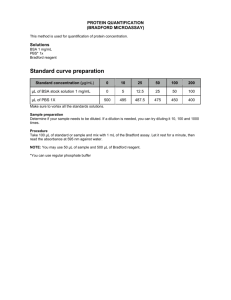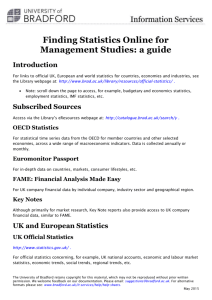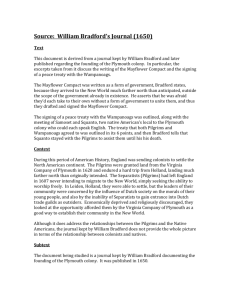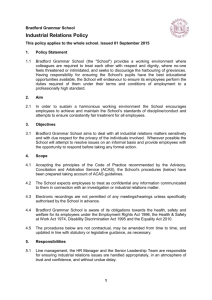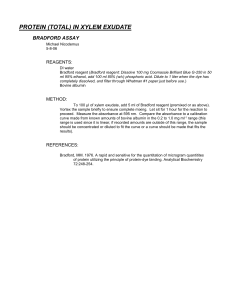William Bradford
advertisement
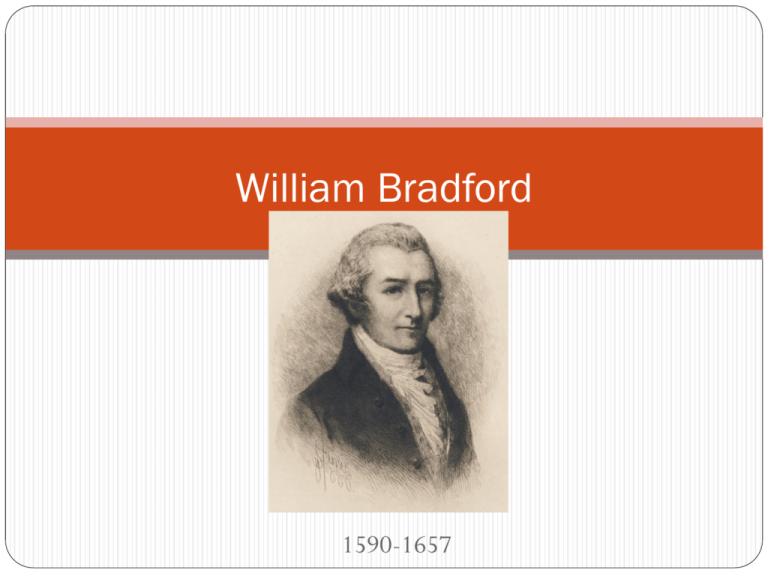
William Bradford 1590-1657 William Bradford Born in 1590 in Yorkshire, England. Orphaned both from parents and grandparents. He and older sister Alice were raised by their uncle Robert Bradford. William Bradford Bradford expressed his nonconformist religious sensibilities in his early teens. At the age of 18, joined with the group of Separatists that fled from England in fear of persecution, arriving in Amsterdam in 1608. William Bradford Bradford migrated to Holland with the rest of the group and lived 11 years in Leiden. In 1620 he helped organize the Mayflower's expedition to the New World. Plymouth Colony To bind the group into a political body, Bradford helped draft the important Mayflower Compact en route to America. Mayflower Compact Earliest document of democracy in America. Lays the foundation for direct popular government. Drawn up for the general good by mutual agreement of the majority of the people. Plymouth Colony (cont.) Bradford helped select the site for the new colony once they arrived in America. In 1621, after the colony's first, disastrous winter, he was unanimously elected governor, served in that position for some 30 years between 1621 and 1656 In 1636 he helped draft the colony’s legal code. Under his guidance Plymouth never became a Bible commonwealth like its larger and more influential neighbor, the Massachusetts Bay Colony. Of Plymouth Plantation Began writing Of Plymouth Plantation in 1630 and continued the project until 1647. As an account of the Pilgrims, it is a major historical and literary achievement of the time. Still the primary source of information about the Plymouth settlement. Of Plymouth Plantation (cont.) Significant document because it provides an eyewitness account of the events that took place and the colonists’ reactions. Plain, simplistic, and straightforward, yet vivid. Bradford is considered to be a trustworthy narrator. Admitted his purpose to write “in a plain style, with singular regard unto the simple truth in all things.” Of Plymouth Plantation Unlike similar tracts from Massachusetts Bay, Bradford did not interpret temporal (worldly) affairs as the inevitable unfolding of God’s providential plan. Not published in Bradford’s lifetime. Passed down through family Lost during Revolutionary War Reappeared nearly a century later in England Published for first time by Massachusetts Historical Society in 1856. Fun Fact! William Bradford's descendants include NoahWebster, Julia Child and Supreme Court Justice William Rehnquist.


